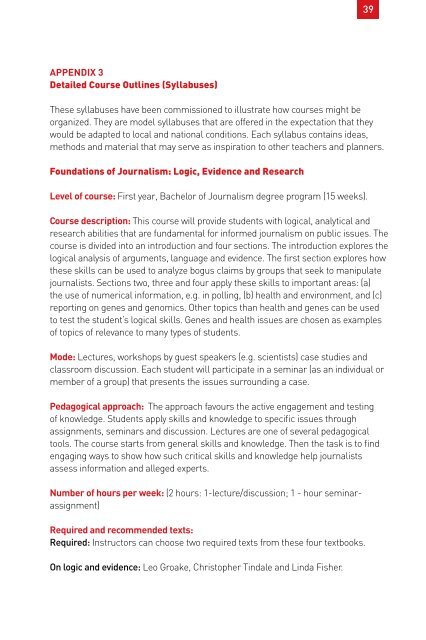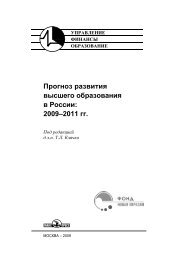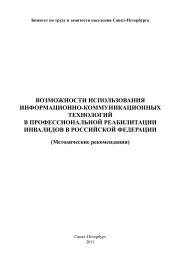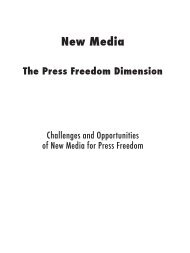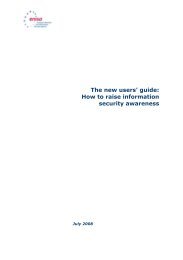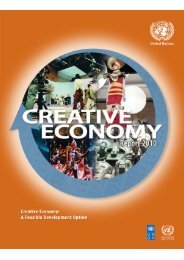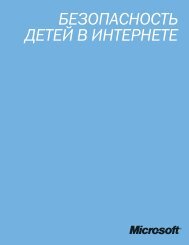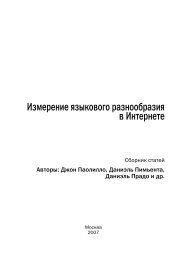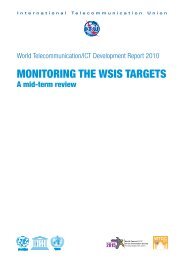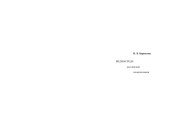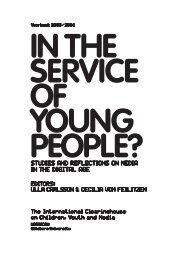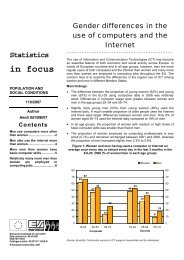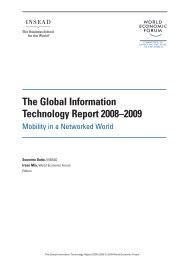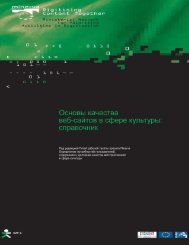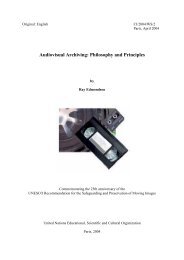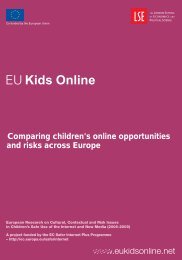Model curricula for journalism education for developing countries ...
Model curricula for journalism education for developing countries ...
Model curricula for journalism education for developing countries ...
You also want an ePaper? Increase the reach of your titles
YUMPU automatically turns print PDFs into web optimized ePapers that Google loves.
39<br />
APPENDIX 3<br />
Detailed Course Outlines (Syllabuses)<br />
These syllabuses have been commissioned to illustrate how courses might be<br />
organized. They are model syllabuses that are offered in the expectation that they<br />
would be adapted to local and national conditions. Each syllabus contains ideas,<br />
methods and material that may serve as inspiration to other teachers and planners.<br />
Foundations of Journalism: Logic, Evidence and Research<br />
Level of course: First year, Bachelor of Journalism degree program (15 weeks).<br />
Course description: This course will provide students with logical, analytical and<br />
research abilities that are fundamental <strong>for</strong> in<strong>for</strong>med <strong>journalism</strong> on public issues. The<br />
course is divided into an introduction and four sections. The introduction explores the<br />
logical analysis of arguments, language and evidence. The first section explores how<br />
these skills can be used to analyze bogus claims by groups that seek to manipulate<br />
journalists. Sections two, three and four apply these skills to important areas: (a)<br />
the use of numerical in<strong>for</strong>mation, e.g. in polling, (b) health and environment, and (c)<br />
reporting on genes and genomics. Other topics than health and genes can be used<br />
to test the student’s logical skills. Genes and health issues are chosen as examples<br />
of topics of relevance to many types of students.<br />
Mode: Lectures, workshops by guest speakers (e.g. scientists) case studies and<br />
classroom discussion. Each student will participate in a seminar (as an individual or<br />
member of a group) that presents the issues surrounding a case.<br />
Pedagogical approach: The approach favours the active engagement and testing<br />
of knowledge. Students apply skills and knowledge to specific issues through<br />
assignments, seminars and discussion. Lectures are one of several pedagogical<br />
tools. The course starts from general skills and knowledge. Then the task is to find<br />
engaging ways to show how such critical skills and knowledge help journalists<br />
assess in<strong>for</strong>mation and alleged experts.<br />
Number of hours per week: (2 hours: 1-lecture/discussion; 1 - hour seminarassignment)<br />
Required and recommended texts:<br />
Required: Instructors can choose two required texts from these four textbooks.<br />
On logic and evidence: Leo Groake, Christopher Tindale and Linda Fisher.


